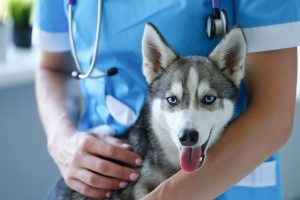
Canine nutrition and behavior. Is there a link?
The Powerful Link Between Canine Nutrition and Behavior
In recent years, pet owners and experts have recognized the profound impact nutrition can have on a dog’s overall well-being, including their behavior. Just as a balanced, nutritious diet is crucial for human health, the right dietary approach plays a vital role in shaping a dog’s physical, mental, and emotional state. By understanding the intricate connection between canine nutrition and behavior, conscientious owners can take a holistic approach to nurturing well-behaved, happy, and healthy canine companions.
The Gut-Brain Connection
At the core of the nutrition-behavior link lies the gut-brain axis, a bidirectional communication pathway between the gastrointestinal system and the central nervous system. This intricate relationship means that what a dog consumes can directly influence their brain function, neurotransmitter levels, and ultimately, their behavior. An imbalanced or inadequate diet can lead to nutrient deficiencies, inflammation, and disruptions in the gut microbiome, all of which can manifest as behavioral issues.
For example, a lack of essential fatty acids like omega-3s can contribute to cognitive decline, impaired learning, and increased anxiety or aggression. Similarly, deficiencies in vitamins B and D, as well as minerals like zinc and magnesium, have been linked to hyperactivity, impulsivity, and even compulsive behaviors in dogs.
Addressing Behavioral Challenges Through Nutrition
By understanding the specific nutritional needs of their canine companions, owners can take proactive steps to support optimal behavior and address common behavioral challenges through dietary adjustments.
Hyperactivity and Impulsivity:
For dogs struggling with excess energy, restlessness, or impulsive tendencies, a diet rich in complex carbohydrates and high-quality proteins can help regulate blood sugar levels and promote a more balanced energy state. Incorporating supplements like L-tryptophan, chamomile, and melatonin may also aid in calming and relaxation. Speak to your veterinarian before giving your dog any supplements.
Anxiety and Fear:
Anxious or fearful behaviors can often be exacerbated by nutrient deficiencies or imbalances. Increasing intake of calming nutrients like L-theanine, magnesium, and omega-3 fatty acids can help support a more relaxed and confident demeanor. Probiotics and digestive enzymes may also contribute to better gut health and reduced anxiety.
Aggression and Reactivity:
Dogs displaying aggression or reactivity towards people or other animals may benefit from a diet tailored to reduce inflammation and support balanced neurotransmitter levels. This can include adding anti-inflammatory supplements like turmeric, as well as increasing intake of tryptophan and omega-3s to promote serotonin and dopamine production. Read more at the National Library of Medicine.
Picky Eating and Food Aversion:
Finicky eaters or dogs with food aversions can be challenging to manage, but addressing potential nutritional imbalances or sensitivities can often improve their appetite and reduce stress around mealtimes. Rotating protein sources, incorporating novel ingredients, and working with a veterinary nutritionist can help identify and address any underlying issues.
The Role of Fresh, Whole Foods and Supplementation
While high-quality commercial dog foods can provide a balanced baseline, many experts recommend incorporating fresh, whole foods and targeted supplementation to optimize canine nutrition and support behavioral health. Nutrient-dense ingredients like lean proteins, fruits, vegetables, and healthy fats can offer a broader array of vitamins, minerals, and antioxidants compared to processed kibble alone.
Additionally, supplementing with probiotics, digestive enzymes, and condition-specific nutraceuticals can help address specific nutritional gaps and support overall gut health, which is closely tied to brain function and behavior.
Working with a Veterinary Nutritionist
While making dietary adjustments can be beneficial, it’s essential to consult with a veterinary nutritionist or qualified professional to ensure that any changes are safe, balanced, and tailored to your dog’s individual needs. These experts can assess your dog’s current diet, identify potential deficiencies or sensitivities, and develop a comprehensive nutritional plan to support optimal physical and behavioral health.
In today’s world, where stress, environmental factors, and modern lifestyles can contribute to behavioral challenges in dogs, taking a holistic approach to nutrition is more important than ever. By understanding the profound link between canine nutrition and behavior, we can empower ourselves to nurture well-rounded, balanced, and happy canine family members through the power of nutrition.
